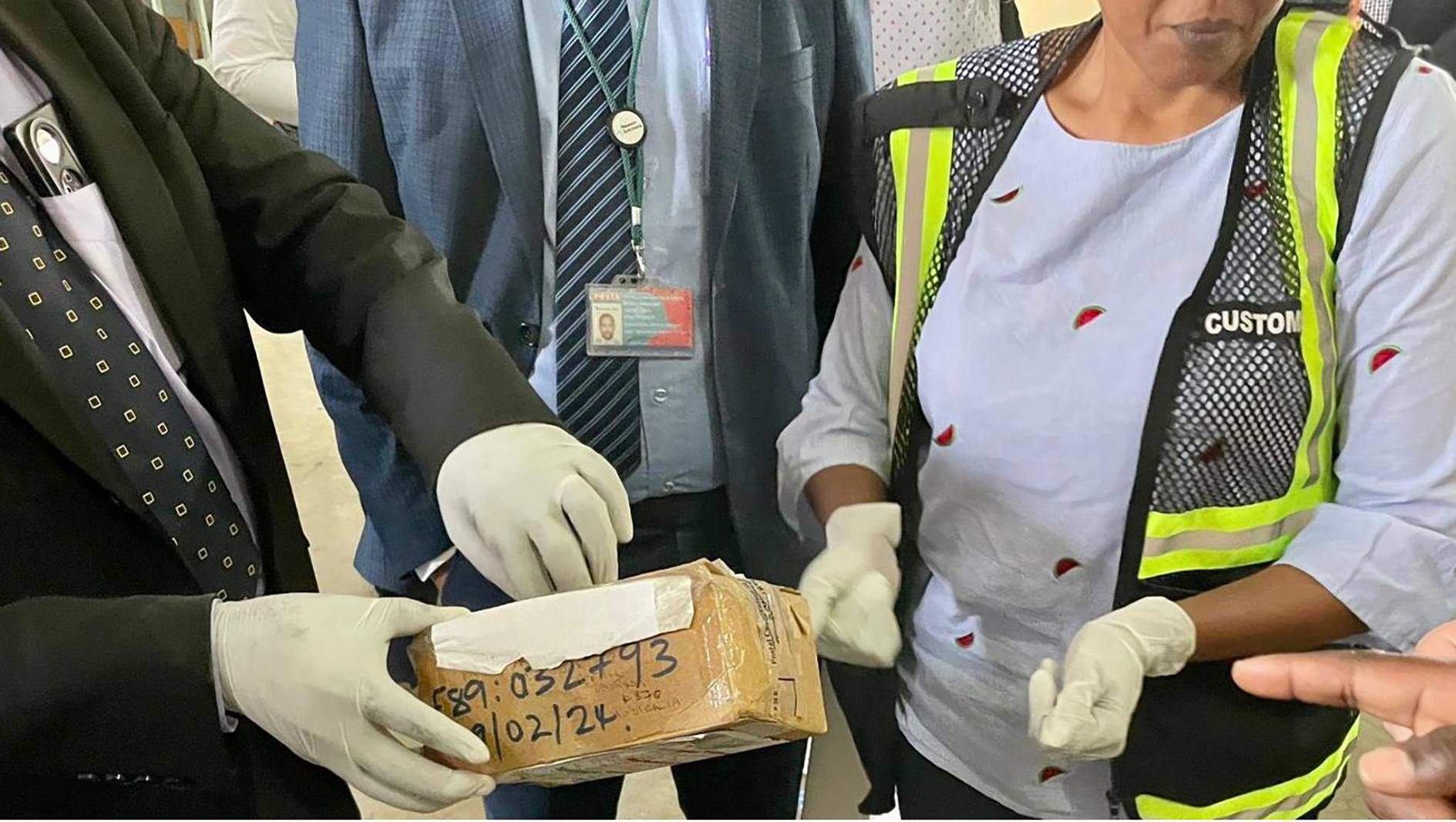The postal system has become an unexpected battleground in the fight against counterfeit and substandard medicines. Criminal networks exploit postal and air cargo services to move illicit pharmaceuticals globally, putting millions at risk. Operation African Star, launched in June 2024, marked a significant step in combatting this growing threat. The multi-agency initiative aimed to intercept illicit pharmaceutical shipments and strengthen enforcement mechanisms across postal networks.
Spearheaded by the US Food and Drug Administration, in collaboration with Kenya’s Pharmacy and Poisons Board (PPB) and Uganda’s National Drug Authority, with support from the International Narcotics Control Board (INCB) and the Universal Postal Union (UPU), Operation African Star successfully seized 92 unauthorized, falsified, substandard or illicitly manufactured pharmaceuticals totalling over 115,000 units and 1.15 kg during a four-day operation in Kenya and Uganda. The INCB provided interdiction training, drug testing kits, and the IONICS platform for intelligence sharing to support enforcement efforts.The World Health Organization estimates that 10% of medical products in low- and middle-income countries are substandard or falsified, resulting in treatment failures, drug resistance, and thousands of preventable deaths. Commonly seized illicit pharmaceuticals include fake cough syrups, pain relievers, opioids, weight-loss and diabetes medications, antibiotics, and erectile dysfunction treatments.
In Africa, for example, Dawn Wilkes, Security Programme Manager at the UPU, says a fake cough syrup crisis led to numerous fatalities among children in 2022, underscoring the need for stronger regulatory interventions.
She explains, “the scale of the problem is enormous and varies from region to region. We need to disrupt the link between suppliers and their markets. Patients often fall prey to counterfeit medicines because they cannot afford genuine alternatives, fuelling the demand for black-market pharmaceuticals.”
To address this growing threat, Operation Africa Star was launched to enhance collaboration in identifying and screening suspicious shipments, and to strengthen law enforcement. The rapid growth of e-commerce has further increased pressure on postal operators, which are struggling to keep up with the overwhelming volume of mail, making it more difficult to effectively monitor shipments, as many illicit pharmaceutical consignments are disguised as legitimate e‑commerce deliveries.
“Operation African Star was not just about enforcement, it was a critical step toward building long-term solutions that empower postal operators and regulators to prevent illicit pharmaceuticals from infiltrating global mail networks. Postal operators need better tools, funding and support to deal with the growing challenge,” says Wilkes.
Matthew Nice, Manager of the INCB Global OPIOIDS Project and the INCB's expert on global interdiction efforts, highlights that Operation African Star was about fostering long-term cooperation between multiple agencies. The operation facilitated cross-border intelligence sharing between Kenya and Uganda, leading to tangible enforcement actions beyond pharmaceutical seizures.
As Nice notes, “a month after the operation, Kenya’s PPB and the Anti-Narcotics Drug Unit successfully dismantled a methamphetamine production facility that was trafficking stimulants across East Africa.”
He also stresses that efforts went beyond enforcement actions to include awareness campaigns, the provision of protective equipment for postal workers, and the development of risk assessment tools. He adds that the INCB and UPU have strengthened their partnership to provide ongoing training and security enhancements in the postal system, ensuring that operators have real-time access to intelligence-sharing platforms and digital tools that streamline threat identification.
Looking ahead, Nice confirms that Operation African Star 2 in Uganda and Kenya is already in the pipeline for June 2025; it will include neighbouring countries such as Tanzania and Ethiopia.
"We want to build on what was achieved in Kenya and Uganda, refining processes, strengthening partnerships, and ensuring that law enforcement agencies and postal regulators continue to share information effectively," he says.
By fostering cross-agency collaboration and equipping postal operators with the right tools and knowledge, the fight against counterfeit pharmaceuticals can gain further ground.
The success of Operation African Star demonstrates that targeted enforcement and international cooperation can disrupt the illicit pharmaceutical trade. Continuous training to adapt to new trafficking tactics is essential, as criminal networks are constantly evolving. Countries must evaluate and improve their existing regulatory frameworks to close gaps in enforcement.
Operation African Star is just the beginning. With continued vigilance, international cooperation, and stronger postal security measures, the fight against counterfeit medicines can be won.
The cover and homepage photo: International Narcotics Control Board (INCB)
